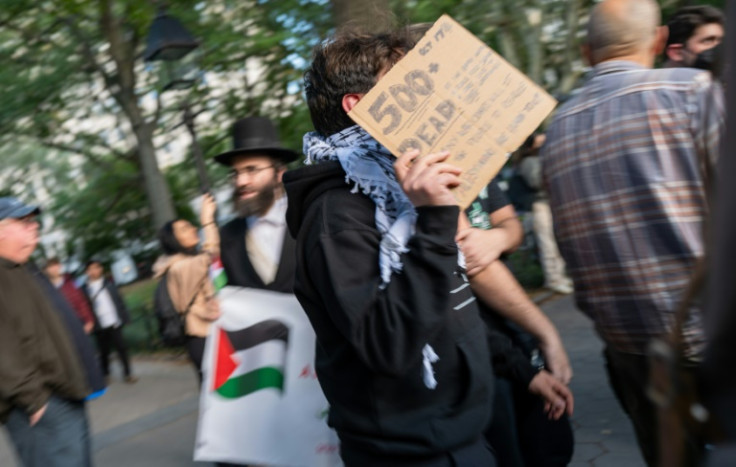
The Israel-Hamas war has become a salient issue in a key electoral year in the U.S., and, as the conflict continues to unfold, a sizable amount of voters are deciding their support based on this.
The latest example took place in the Michigan primary, where more than 100,000 voters cast ballots for "uncommitted." It is believed that most of them were part of the state's large Muslim community, most of whom have been highly critical of the U.S. continued support for Israel as the humanitarian situation in Gaza continues to deteriorate.
Now, according to a report by NBC News, many Latino Democrats who are set to cast ballots in California during Tuesday's elections will also determine their vote based on the candidates' stances on the issue.
"Our liberation is intertwined with the liberation of Palestine," Eduardo "Lalo" Vargas, a public high school teacher who is running for the Los Angeles City Council in District 14, where 62% of residents speak Spanish, told the outlet. Vargas added that he won't support Biden in the presidential elections given the administration's refusal to call for a permanent cease-fire in Gaza.
The lack of party unity on the issue can also be seen in the senatorial race pitting Rep. Barbara Lee, Adam Schiff and Katie Porter. The former, who is Black, calls herself the "pro-peace candidate" and has called for a permanent cease-fire, while the other two main opponents have called for a "humanitarian pause" and a "bilateral cease-fire."
A recent poll by The Economist/YouGov showed that almost half of Latinos believe that Israel is committing a genocide against Palestinian civilians, the highest proportion among the U.S.'s largest demographics.
Concretely, 46% of Latino respondents said this was the case, compared to 40% of Blacks and 30% of Whites. In contrast, 30% of Latinos said Israel's actions do not amount to genocide, a stance shared by 18% of Blacks and 41% of Whites. The remaining percentages said they weren't sure.
The survey asked several related questions such as whether people believed the Israeli government's response is being too harsh, if they favor more aid to Palestinians and Israel and overall sympathies with both sides.
Regarding the latter question, Latinos were more or less evenly distributed in their responses, with 30% saying they sympathize more with the Israelis, 21% with the Palestinians and 35% "about equal." The remaining 14% said they weren't sure.
Overall, Whites tended to side more with Israel, Latinos were mixed and a large percentage of Blacks said they weren't sure of their answers.
© 2025 Latin Times. All rights reserved. Do not reproduce without permission.




